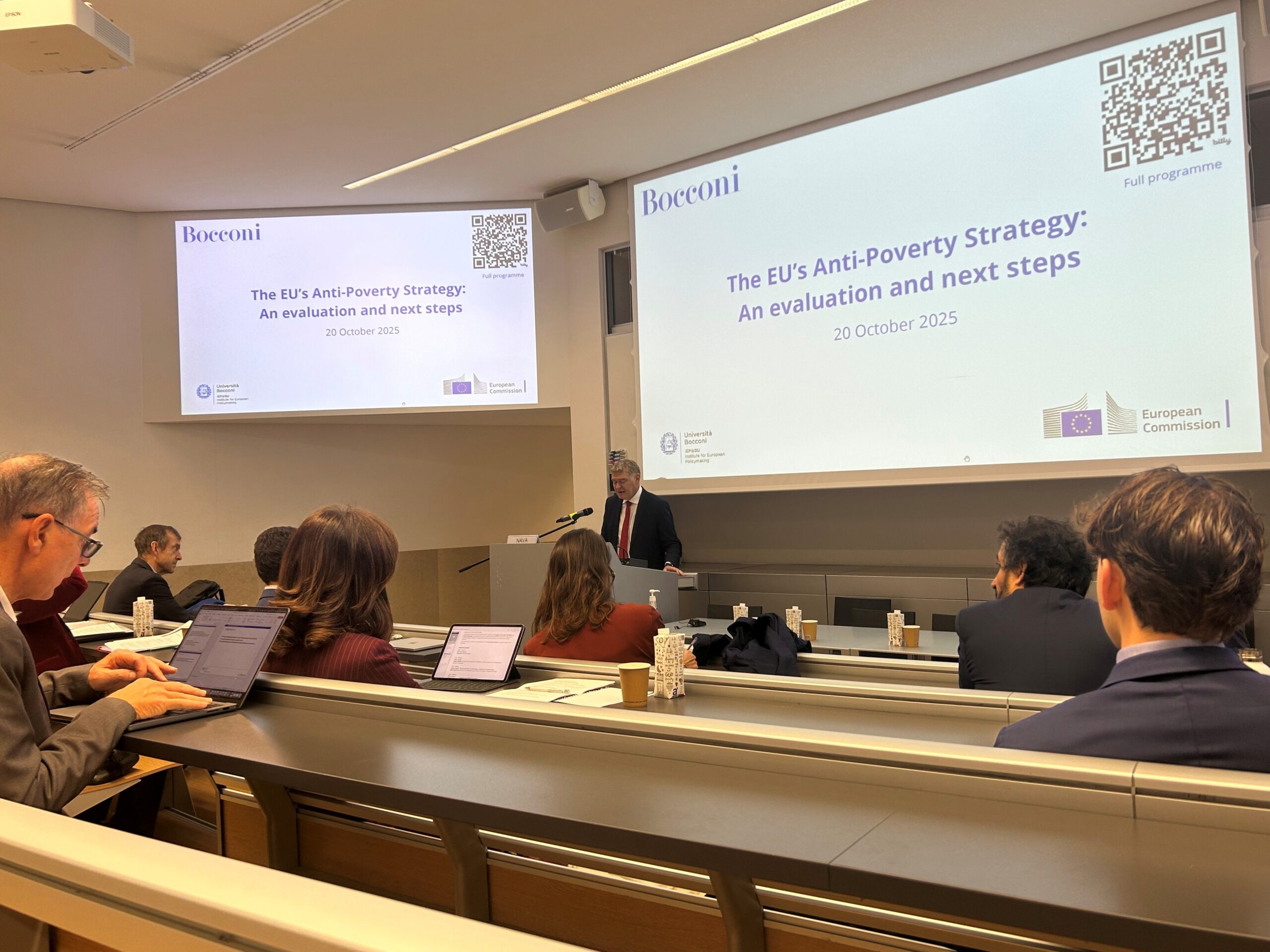PATHS2INCLUDE’s impact partner, COFACE Families Europe, participated in the European Commission’s conference ‘The EU Anti-Poverty Strategy: An evaluation and next steps’ which took place on 20 October 2025 in Milan, Italy.
The conference was organized in cooperation with Bocconi University and aimed to discuss key issues such as as minimum income schemes, breaking the intergenerational cycle of poverty, and financing anti-poverty measures in preparation of the first-ever European Anti-Poverty Strategy, as announced by President von der Leyen’s political guidelines for 2024–2029.
PATHS2INCLUDE aims to study the processes that shape barriers or facilitate inclusive labour markets. Employment is a key dimension of poverty, with poverty being both a cause and a consequence of labour market exclusion. For example, exclusion from employment may lead to lower income due to high levels of underemployment/unemployment as well as lower pay scales for minority groups performing the same work as individuals from majority groups in society. On the other hand, poverty can reduce access to resources, training and services which in turn reduces access to quality jobs.
This article summarizes some of the key topics that were discussed during the conference.
- Minimum income as an active inclusion approach
The first panel focused on the role of the Council Recommendation on adequate minimum income in combatting poverty. Panellists from Bocconi University, the European Commission and Caritas discussed the heterogeneous implementation across member states and overall barriers to access for people in need. During the panel, speakers also highlighted a variety of other issues, including in-work poverty, the transition from education to employment, and the lack of cohesive data collection of groups that are more at-risk of poverty, for example, people with disabilities, which is also stressed in the latest PATHS2INCLUDE policy brief.
- Addressing the root causes of poverty across generations
The second panel aimed to discuss the causes and characteristics of people experiencing poverty, with a specific focus on intergenerational poverty. Indeed, PATHS2INCLUDE research highlights the vulnerable socio-economic position of older people after leaving the labour market, particularly for older women who had fragmented career trajectories due to caregiving responsibilities (read more here). Panellists from the European Commission and Bocconi University suggest increasing access to services, such as education. PATHS2INCLUDE research findings found that particularly tertiary education can be a key factor in mitigating the impact of structural disadvantages related to gender and health on labour market attachment (read more here).
- Addressing poverty as an investment
Addressing poverty is not only a moral imperative, there is also evidence of a high return on investment in the EU’s growth, cohesion and competitiveness, according to the speakers of the last panel. Inaction, such as a persisting gender employment gap, leads to economic losses. PATHS2INCLUDE research also found that the economic context in which individuals lives can impact their labour market participation and retirement decisions. For example, a higher level of wealth is linked to a reduced likelihood of being excluded from the labour market. Wealth appears to mitigate other vulnerabilities, such as poor health and gender, significantly reducing their negative effects among individuals with greater economic resources (read more here).
PATHS2INCLUDE already showed its commitment to fighting poverty by contributing its findings to the United Nations Special Rapporteur on extreme poverty and human rights’ “Roadmap for eradicating poverty beyond growth”. Now, these findings have also been submitted in response to the EU consultation on the Anti-Poverty Strategy.
By enhancing the labour market inclusion of both the broader population as well as people in vulnerable situations, PATHS2INCLUDE aims to contribute to reducing inequalities and poverty prevention.

